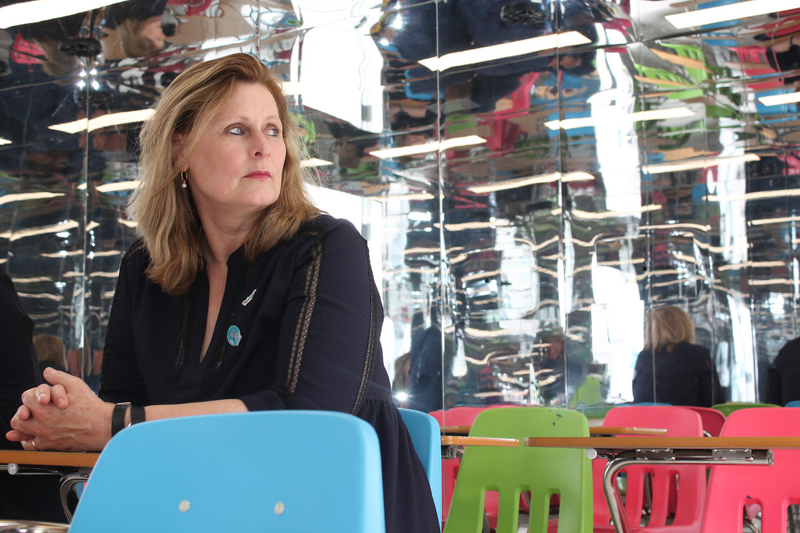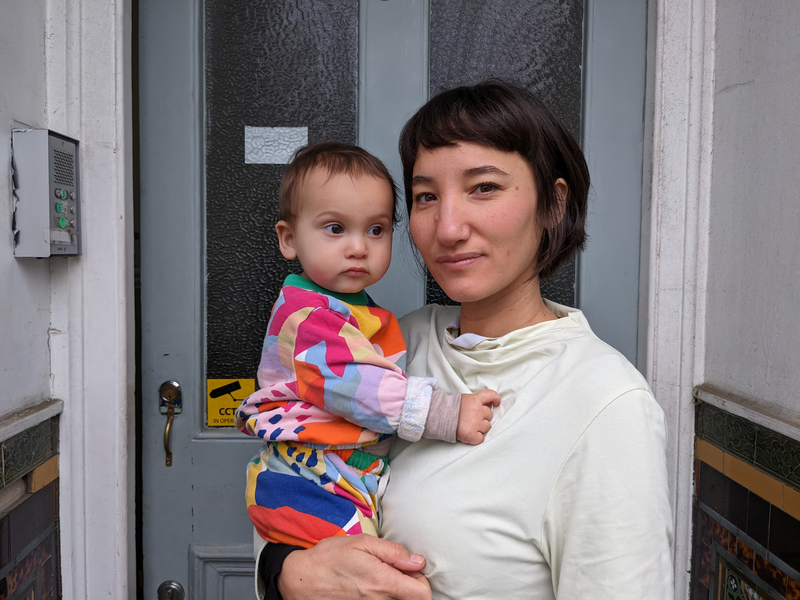
Parents are being forced to quit their jobs because nursery fees are more than their wages.
The cost of childcare is forcing one in four UK parents to give up their job or drop out of education, according to a new study.
The research found 23 per cent of UK-based parents had either quit work or dropped out of their studies to avoid childcare costs, compared with 17 per cent of their counterparts in Brazil, 16 per cent in Turkey and 13 per cent in Nigeria.
Some 74 per cent of parents in the UK said they find it difficult to meet childcare costs, compared with 52 per cent in India, 57 per cent in the Netherlands, 59 per cent in Nigeria, 68 per cent in the US and Brazil, and 72 per cent in Turkey.
For Lauren Cooper, of Banbury, Oxfordshire, it was not only her career but a second child that she was forced to give up due to the extortionate price of childcare.

“We definitely wanted two children,” the 27-year-old said. “But because of the childcare issue, I’d be out of work again for a minimum of another two-and-a-half years. We’re renting and we want to buy a house, but the only hope of us ever buying a house would be for me to go back to work - so we decided we’ll have no more children. We can’t afford it.”
She was training to become a dental nurse but was forced to turn to a work-from-home customer service role when the Covid-19 pandemic struck.
After her maternity leave had come to an end, she said, “We looked into nursery options and the fees were more than I would be bringing home. It didn’t seem worth it.” She said the monthly fees came to a minimum of £1,200 if her son was to be in nursery five days a week, and her wage differed from that by only £100.
“I love my son, and I love being with him - but I also had a career that I was working towards,” said Ms Cooper, whose son is now almost two-years-old. “I’ve always loved working. I think it’s awful, being forced to not go back to work and give up your career. It’s like I’ve been given no choice.”

More than 7,000 parents and carers from across the world with children under the age of seven have been questioned for global children’s charity Theirworld.
Theirworld chairwoman Sarah Brown, who is married to former UK prime minister Gordon Brown, is urging governments to prioritise spending on the early years and calling for a “revolution”.

The survey has “laid bare the scale of the global early years crisis and its impact on children in rich and poor countries alike” and change is needed because “early years childcare is as essential to a country’s infrastructure as roads, hospitals and telecommunications”, Mrs Brown said.
“Childcare costs are so expensive that you end up spending more on childcare than what you actually earn,” said Alicja Banks, of Yate, Bristol. “It’s awful.” She said sending her daughter, who is now two, to nursery for four days a week would have cost her up to £1,120 a month.
And when their daughter was born, the health of her husband, who has multiple sclerosis (MS), worsened, leaving her with the majority of the family’s earning and caring responsibilities. As a result, the 26-year-old was forced to quit her job in banking and start claiming benefits.

Like Ms Cooper, the family has also decided to not have a second child, a decision influenced by the high cost of childcare.
Elvira Grob, 41, who is a lecturer in design on a zero-hours contract, has been left feeling “close to burnout” as she and her partner Michael spend £975 a month on childcare for their 10-month-old daughter, Yoomi.
The London-based couple do not want to give up their daughter’s place at nursery to save money because she “loves it there” and it is good for her development.
Ms Grob, who is also retraining and studying for a degree, returned to work two days a week when Yoomi was six months old. She said: “I work in the evenings, I work when Yoomi sleeps, and I work at weekends. My income covers Yoomi’s childcare but I have rent to pay, and I also have to pay for my studies. It’s got to a point where I’m considering dropping my degree to help us pay our bills.”

Joeli Brearley, CEO and founder of Pregnant Then Screwed, said the burden of childcare tends to fall onto the shoulders of mothers, with 870,000 currently unable to work due to a lack of affordable and accessible childcare, and 1.7 million mothers working fewer hours than they would like to because they cannot afford to pay to work.
In Ms Cooper’s case, she said “there wasn’t even a discussion” about whether she or her husband stayed home to take care of their son.
Ms Brearley called on the Government to fulfill its childcare pledges in its Spring Budget, adding, “This isn’t a ‘mummy issue’, this is an issue for the whole of society - it contributes to the skills gap, it inhibits economic growth, and it ensures only the very wealthy can access early years education for their children thereby entrenching inequality.”

ChancellorJeremy Hunt made childcare a central part of his Budget, providing an extra £4 billion over three years. He also announced that in all eligible households in England every child under five will receive 30 hours a week of free childcare from the moment maternity leave ends.
However, critics have pointed out that this will not be in place until September 2025.
Prime Minister Rishi Sunak, appearing before the Commons Liaison Committee last month, denied that the childcare system is in crisis.







